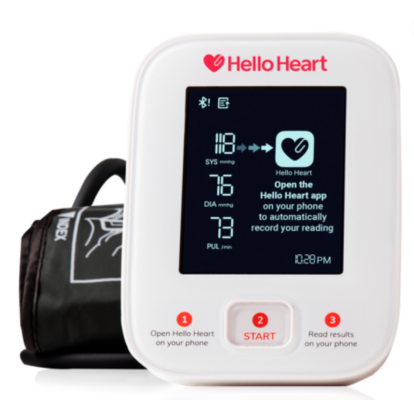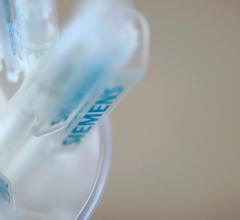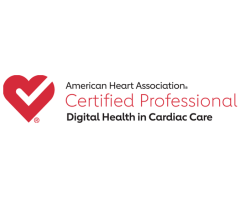
A new peer-reviewed study published in the Journal of the American Heart Association, JAHA, found that Hello Heart’s digital heart health program was associated with reductions in blood pressure (BP), total cholesterol (TC), low-density lipoprotein cholesterol (LDL-C), and weight. Image courtesy: Hello Heart
May 23, 2024 — A newly-published peer-reviewed study in the Journal of the American Heart Association, JAHA, found that Hello Heart’s digital heart health program was associated with reductions in blood pressure (BP), total cholesterol (TC), low-density lipoprotein cholesterol (LDL-C), and weight. An overview of findings, presented by the Menlo Park, CA-based company, which offers a cardiovascular digital health program, follows.
The study, “Comprehensive Cardiovascular Risk Factor Control with a Mobile Health Cardiovascular Risk Self-Management Program,” highlights the potential use of digital health technology in the comprehensive control of risk factors for cardiovascular disease (CVD), the leading cause of death and disability in the United States. The study is the largest and most robust of its kind to date, examining 102,475 Hello Heart users with high BP (hypertension) between January 2018 and December 2022. Users were equipped with Hello Heart’s connected heart health monitor and mobile app with digital coaching.
The Hello Heart monitor and app recorded BP, heart rate, and the appearance of irregular heartbeat. The app also recorded other significant heart health risk factors, such as cholesterol, weight, and physical activity via integration with external sources including electronic medical records and fitness trackers. In addition, users inputted and tracked medications related to their heart health (e.g. statins).
Based on these data points, the app used artificial intelligence (AI) and behavioral science to provide personalized and actionable heart health insights to participants, aligned with clinical guidelines – for instance, the correlation over time between a participant’s medication usage, physical activity, and trends in their key heart health metrics.
Results from the study showed that:
- At two years, participants with baseline systolic BP (SBP) above 140 mm Hg reduced SBP by 19 mm Hg.
- At 13 months, participants with baseline TC above 240 mg/dL reduced TC by 66 mg/dL.
- At 13 months, participants with baseline LDL-C above 160 mg/dL reduced LDL-C by 67 mg/dL.
- At 7.2 months, participants with baseline body mass index (BMI) above 30 kg/m2 lost 12 pounds, or 5.1% of their body weight.
- Interaction with Hello Heart’s lifestyle-based digital coaching was associated with greater reductions in BP, TC, LDL-C, and weight.
“Hypertension, high cholesterol, and obesity are among the most common risk factors of cardiovascular disease and mortality — but getting these risk factors under control can be very challenging,” said Edo Paz, MD, the study’s lead author and SVP, Medical Affairs, Hello Heart. “This study suggests that digital heart health management tools can make a significant, sustainable impact across these risk factors, and ultimately help people take control of their heart attack and stroke risk.”
“An estimated one in five Americans will die from cardiovascular disease, so the need for effective, scalable interventions is crucial,” said Erin Michos, MD, study co-author and Director, Women’s Cardiovascular Research and Associate Director, Preventive Cardiology, Johns Hopkins Medicine. “A growing body of evidence shows that accessible digital devices and apps are among the most scalable of these interventions, impacting everything from medication adherence to lifestyle behavior change,” added Michos.
Hello Heart Study Focused on Mobile Cardiovascular Monitoring
Participants with hypertension, with or without dyslipidemia, enrolled in Hello Heart, a workplace-deployed mHealth app-based CV risk self-management program, between January 2018 through December 2022. Retrospective evaluation explored the influence of app engagement on changes in BP, TC, LDL-C and weight. Multiple regression analyses examined the influence of guideline-based, non-pharmacological lifestyle-based digital coaching on outcomes adjusting for confounders. Of 102,475 participants, 49.1% were female. Median age was 53 years, median BP was 134 mm Hg, median TC was 183 mg/dL, LDL-C was 106 mg/dL, and median BMI was 30 kg/m2.
Founded in 2013, Hello Heart is a digital leader in preventive heart health and a member of the American Heart Association’s Innovators’ Network. The company reports that it provides users with a connected blood pressure monitor and AI-driven digital coaching app. Through human-centric design, users receive tailored and actionable insights around healthy eating, activity, and medications. Users can also track key heart metrics like blood pressure and cholesterol unique to each person and consistent with clinical guidelines. By building a habit of monitoring heart health, users create sustained lifestyle changes. Validated in peer-reviewed studies, Hello Heart users achieve significant reductions in blood pressure and other cardiovascular risk factors over a sustained period.
More information: www.helloheart.com
Related content:
Reference:


 November 14, 2025
November 14, 2025 









